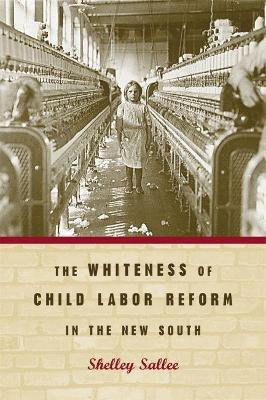The Whiteness of Child Labor Reform in the New South(English, Paperback, Sallee Shelley)
Quick Overview
Product Price Comparison
Focusing on Alabama's textile industry, this study looks at the complex motivations behind the "whites-only" route taken by the Progressive reform movement in the South. In the early 1900s, northern mill owners seeking cheaper labor and fewer regulations found the South's doors wide open. Children then comprised over 22 percent of the southern textile labor force, compared to 6 percent in New England. Shelley Sallee explains how northern and southern Progressives, who formed a transregional alliance to nudge the South toward minimal child welfare standards, had to mold their strategies around the racial and societal preoccupations of a crucial ally-white middle-class southerners. Southern whites of the "better sort" often regarded white mill workers as something of a race unto themselves-degenerate and just above blacks in station. To enlist white middle-class support, says Sallee, reformers had to address concerns about social chaos fueled by northern interference, the empowerment of "white trash," or the alliance of poor whites and blacks. The answer was to couch reform in terms of white racial uplift-and to persuade the white middle class that to demean white children through factory work was to undermine "whiteness" generally. The lingering effect of this "whites-only" strategy was to reinforce the idea of whiteness as essential to American identity and the politics of reform. Sallee's work is a compelling contribution to, and the only book-length treatment of, the study of child labor reform, racism, and political compromise in the Progressive-era South.


